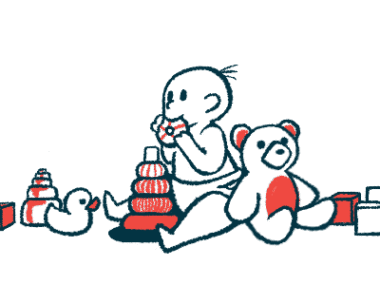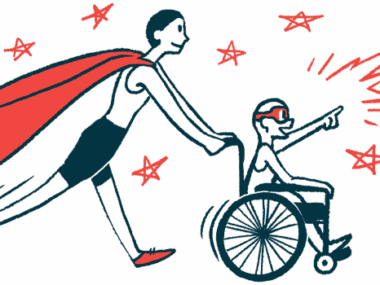Envision Will Study Dravet Natural History in Children to Learn Impact
Written by |

The first participant has been enrolled in Envision, a natural history study that will follow children with Dravet syndrome for more than two years as it seeks to shed light on how this severe type of epilepsy affects motor and neurological development, seizures, and behavior.
Envision also will assess Dravet’s impact on parents and caregivers, in addition to examining health care resource use among patients.
“Natural history studies are incredibly important to understanding and developing treatments for disease,” the Dravet Syndrome Foundation notes on its website in an informational page about Envision.
“The information collected from a natural history study can then be used as a reference to inform health care decisions, including preventative interventions,” the website said.
Envision (NCT04537832), conducted by Encoded Therapeutics, is recruiting about 50 children, ages 6 months to 5 years (60 months) for the two-year study. To be eligible, children must have a clinical diagnosis of Dravet and a confirmed mutation in the SCN1A gene — the most common underlying cause of the syndrome, which leads to overactivation of the nervous system and the development of seizures. For more information on locations and contacts, go here.
The study will be conducted across 14 sites in the U.S., and one each in the U.K. and Australia. Notably, as the study is an observational one, it will not involve any treatments or interventions.
Data later will be used by Encoded in its development of ETX101, its investigational gene therapy for Dravet. That gene therapy has been found to lower seizure frequency in preclinical studies.
According to the Dravet Syndrome Foundation, natural history studies such as Envision collect clinical data at regular visits using consistent assessment methods to provide an accurate picture of disease progression over time. The results will help clinicians recognize early disease symptoms, their progression, the range of severity, and how often they occur.
That information can then be used to guide health care decisions, support the need for preventive interventions, and bring attention to co-existing conditions, called comorbidities, that are not targeted by current therapies.
Additionally, natural history studies support the development of new treatments by providing comparison data for clinical trials. Having such data can help researchers to determine the effectiveness of an investigational therapy on all study endpoints, or goals.
The foundation noted that there currently is limited data on how Dravet progresses over time, as well as a lack of consensus on validated assessments specific to the disorder.
Over the course of the study, Envision will document the participants’ number of seizures and seizure-free days using a diary. Records also will be kept of all anti-epileptic or other therapies used by patients.
Beyond seizures, Envision also will assess the children’s motor, cognitive, and language abilities, as well as their social, emotional, and behavioral functioning. Quality of life will be measured by standardized assessments.
Encoded will use the findings as an external control to demonstrate the potential of its ETX101 therapy on the impact of seizures and non-seizure related outcomes. The gene therapy aims to increase the production of SCN1A by modulating gene activity.
Preclinical work in a Dravet mouse model has shown ETX101 increased the production of SCN1A, lowered seizure frequency, prolonged survival, and partially corrected abnormal behaviors. Encoded said it hopes to begin a clinical trial called ENDEAVOR later this year.
A separate natural history study involving adults with Dravet also is underway, according to the foundation. Researchers launched that study as this disorder affects individuals across their lifespan.
Despite recognizing that the syndrome continues to impact adults, there remains a lack of research on that patient population. There are many unknowns about the progression of adult symptoms and the preferred treatment approaches, clinicians note.
Furthermore, the lack of familiarity with adult Dravet among health care providers has contributed to difficulties faced by many families in transitioning from childhood to adult care. This study hopes to raise awareness of Dravet among clinicians, lead to further research, and improve outcomes.
As part of that study, researchers will ask caregivers of adult Dravet patients — those ages 18 and older — about seizure frequency and aspects of daily life, including behavior, walking (gait), posture, and mood. Participants will be sent questionnaires and asked to provide video recordings after watching a tutorial.
“Given the lack of robust research focused on adults with [Dravet], the results of this type of study can add substantially to our knowledge base and hopefully improve outcomes for patients with Dravet syndrome as they reach adulthood,” the foundation said on its website in providing information about this study.





